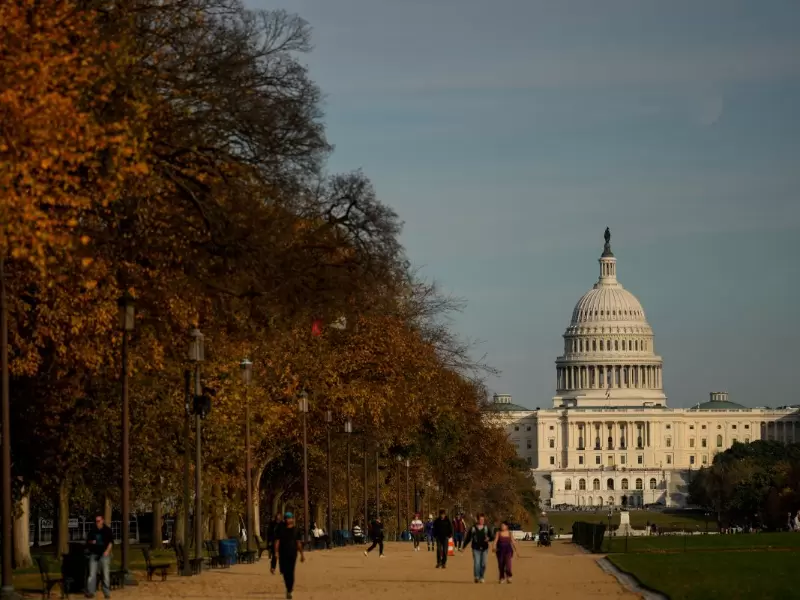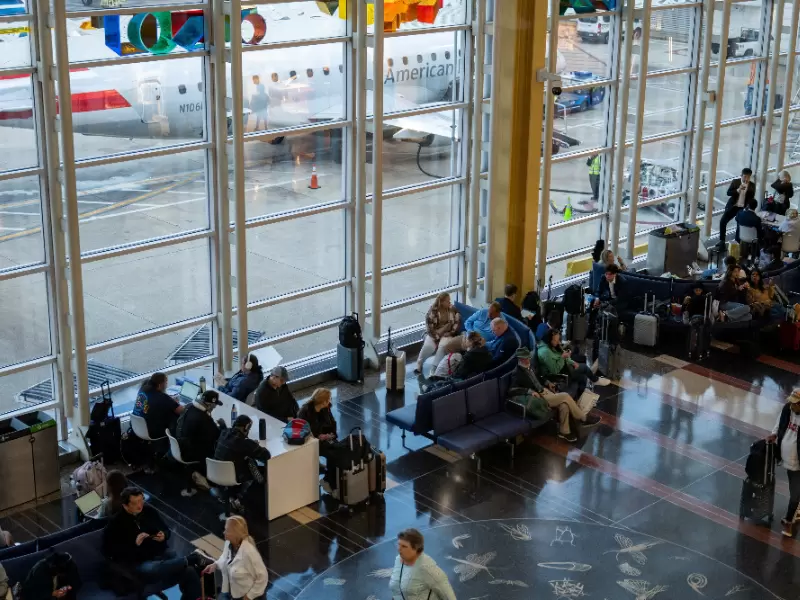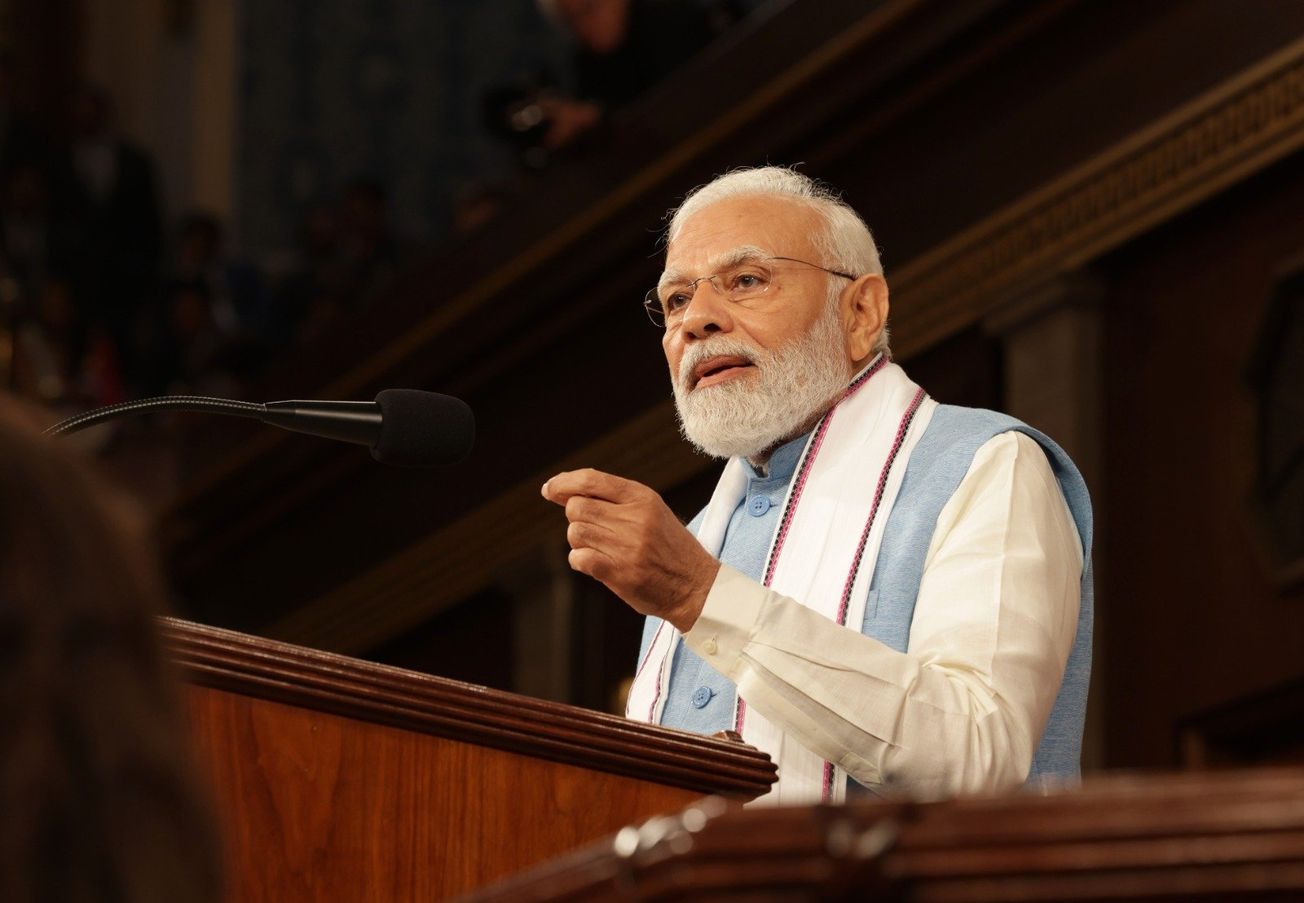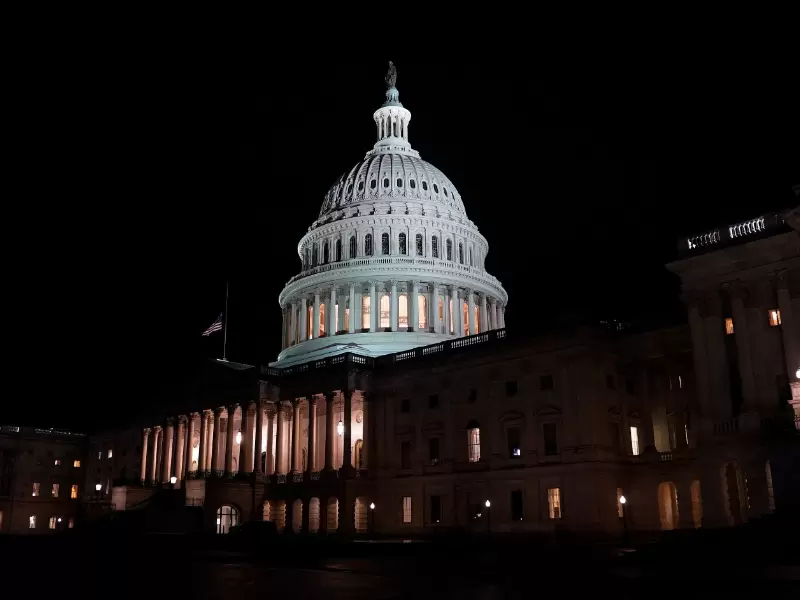US shutdown fallout: Who came out ahead; and who didn't
Reuters asked a dozen strategists and analysts to assess who strengthened their position and who paid a price in the short- and long-term.
 People walk along the National Mall, in view of the U.S. Capitol building, more than a month into the continuing U.S. government shutdown in Washington, D.C., U.S., November 2, 2025. / REUTERS/Kent Nishimura/File Photo
People walk along the National Mall, in view of the U.S. Capitol building, more than a month into the continuing U.S. government shutdown in Washington, D.C., U.S., November 2, 2025. / REUTERS/Kent Nishimura/File Photo
As the U.S. Congress moved toward a deal to end the longest U.S. government shutdown in history, Reuters asked a dozen strategists and analysts to assess who strengthened their position and who paid a price in the short- and long-term.
Donald Trump: Owning the shutdown
No matter how many times the president has tried to avoid blame for the shutdown, ultimately, the buck stops with him. The White House has faced weeks of headlines about air traffic snarls and low-income families struggling to feed their kids. Even Trump himself admitted that the shutdown probably damaged Republicans in last week’s elections that saw Democrats win in New Jersey, Virginia, and New York City.
Also Read: US Senate compromise sets stage for end to government shutdown
“Americans recognize that 10 months into his presidency, costs have not gone down. And over the course of this 40-day shutdown, Trump did not emerge as someone who was fighting for them," said Democratic strategist Karen Finney. "He wasn't trying to resolve the issue. He wasn’t engaged; he was nowhere to be found.”
But the public has a short memory. After the government reopens, Trump can train his focus on Americans' cost-of-living concerns before the 2026 congressional midterms. He has shown he can keep his party together under extreme pressure while making few concessions.
“I think he comes out the winner of all this. He had to expend very little political capital in the shutdown," said John Elizandro, a Republican strategist.
"The negotiated deal gives him a resolution without forcing him to further escalate the clash with Senate Republicans over the filibuster,” he added, referring to the Senate requirement of 60 votes to pass legislation.
Consensus: Short-term loss, long-term neutral
Senate Republicans: Staying together
Under the leadership of John Thune, Senate Republicans stayed united, held their ground, and managed to peel off eight Democrats to vote to reopen the government. Their only concession was agreeing to a December vote on extending healthcare subsidies—a vote widely expected to fail.
But unity doesn't guarantee immunity.
Recent Reuters/Ipsos polling showed that voters were more likely to blame Republicans than Democrats for the shutdown, a potential warning sign for next year's midterm elections. Some Republicans blamed the shutdown for the trio of losses the party suffered in elections last week.
Consensus: Short-term victory, long-term vulnerability
Democrats: A split decision
They held their ground—until they didn’t. Many in the Democratic Party are furious that eight senators defected after the party's electoral victories last week. Those senators argued their party's shutdown strategy wasn't working, and lasting damage was being done to the economy.
But critics said they left those desperate for relief from healthcare premium increases in the lurch.
“Democrats who supported this compromise are feckless," said Michael Ceraso, a Democratic operative who worked on progressive Senator Bernie Sanders' 2016 presidential campaign. "I believed my party would deliver after (last week's) elections."
If Republicans torpedo the Democratic push to extend healthcare subsidies, it will give Democratic candidates a ready-made issue in the midterms—akin to 2018, when Democrats took back control of the House amid Republican threats to repeal the Affordable Care Act, or Obamacare.
"Democrats have successfully elevated healthcare as a major national issue. This is dangerous for Republicans, as healthcare drove the 2018 suburban blue wave," said Carlos Curbelo, a former Republican congressman from Florida.
Consensus: Short-term backlash, long-term leverage
Chuck Schumer: Fire from the left
The Senate’s top Democrat saw his colleagues do an end-run around him to cut a deal with Republicans.
He voted against the measure, but critics on the left blame him for allowing it to happen, with some progressive advocacy groups and at least one Democratic congressman, Ro Khanna of California, calling for his ouster.
Consensus: Loss
Federal workers: Relief, for the moment
Government employees have been big losers in the shutdown, going without pay. Some have taken temporary jobs to help pay bills.
To their relief, the end of the shutdown will restart regular paychecks and give them back pay.
Under the proposed Senate deal backed by Republicans and the small group of Democratic senators, they also get a temporary reprieve from the Trump administration’s layoff push until the end of Jan. 2026.
But these workers must fear another shutdown next year. Both parties have shown their willingness to use federal employees as bargaining chips.
Consensus: Short-term loss, long-term risk
Airline passengers: Still bumpy ahead?
The end of the shutdown should allow officials to reverse forced flight reductions at the busiest airports that have caused havoc for hundreds of thousands of travelers.
The government ordered the cuts due to absenteeism among the 13,000 air traffic controllers and 50,000 airport security screeners who have been required to work without pay during the shutdown. Many didn't come to work because they took second jobs or couldn't afford childcare.
On Nov. 9, the 40th day of the shutdown, 10,200 flights were delayed in the worst day for air travel yet.
If the disruption lingers, it would prolong misery for travelers going into Thanksgiving week, one of the busiest air travel times of the year.
Moreover, even before the shutdown, the U.S. was about 3,500 air traffic controllers short of targeted staffing. Many worked mandatory overtime and six-day weeks, and air travel snarls were common, suggesting disruption may continue.
Consensus: Short-term turbulence, long-term uncertainty
ObamaCare participants: Paying a price?
For Democrats, the shutdown was about protecting consumers from rising health insurance costs as subsidies for Obamacare plans expire at the end of the year.
But the deal to reopen the government didn’t secure those protections—leaving millions who rely on the exchanges exposed to premium hikes.
Democrats hope to pass legislation next month to preserve the subsidies, but the odds are slim. If the effort fails, the families whom they sought to help will feel the full weight of rising premiums with no clear prospects for relief.
Consensus: Short-term loss, long-term threat
ADVERTISEMENT
ADVERTISEMENT
E Paper
Video



 Reuters
Reuters











Comments
Start the conversation
Become a member of New India Abroad to start commenting.
Sign Up Now
Already have an account? Login